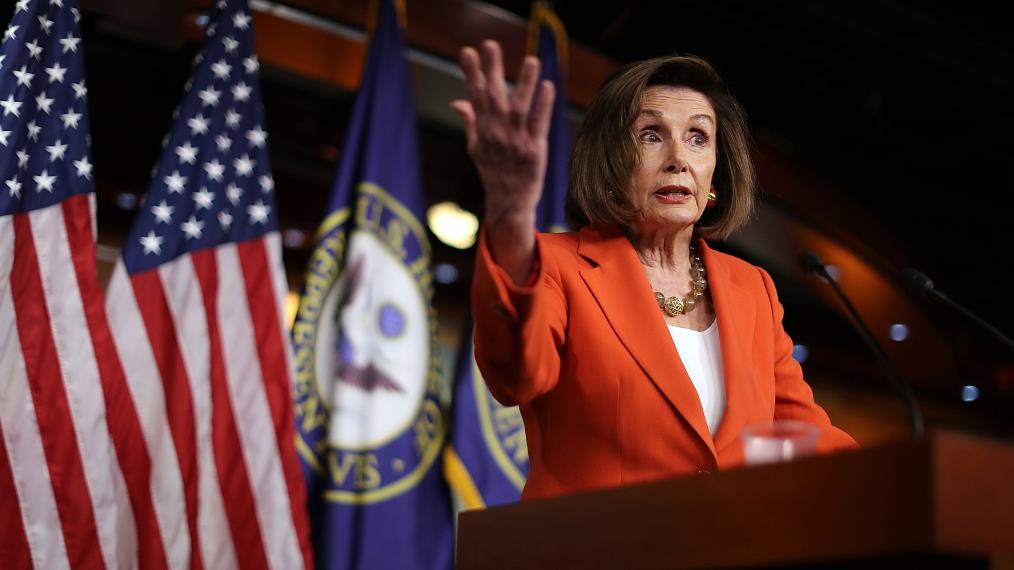WASHINGTON, Oct. 31 (CGTN) -- The U.S. House of Representatives took a major step on Thursday in the effort to impeach President Donald Trump when lawmakers approved rules for the next, more public stage in the Democratic-led inquiry into Trump's attempt to have Ukraine investigate a domestic political rival.
How did members vote?
Democrats accusing Trump of abusing his office and jeopardizing national security for personal political gain were almost unanimous in approving Thursday's measure, but they did not pick up a single Republican vote.
In the first formal test of support for the impeachment investigation, the Democratic-controlled House voted almost entirely along party lines – 232 to 196 – to move the probe forward in Congress.
"It's a sad day. No one comes to Congress to impeach a president," House Speaker Nancy Pelosi said before the vote.
What happens next?
The vote allows for public impeachment hearings in Congress, which are expected in the coming weeks and portends a bitter battle ahead as the United States heads into a presidential election year.
Televised public hearings featuring U.S. officials testifying in Congress about alleged wrongdoing by Trump could crowd out other issues like the economy and immigration as voters turn their minds to the November 2020 election.
That might damage Trump, but some of his supporters say the impeachment drive could actually boost his reelection chances by showing him at loggerheads with Washington-based political foes.
Republicans accused Democrats of using impeachment to overturn the results of his 2016 election victory.
How has Trump reacted?
Trump told a UK radio station the Democrats knew they were losing next year's vote and so were trying to take him down.
"The Democrats are desperate, they're desperate. They have nothing," Trump told LBC Radio in an interview. White House spokeswoman Stephanie Grisham denounced the process as "unfair, unconstitutional and fundamentally un-American."
A number of opinion polls ahead of next year's election show several leading Democratic presidential candidates leading Trump.
What's the background?
The probe focuses on a July 25 telephone call in which the U.S. president asked his Ukrainian counterpart, Volodymyr Zelensky, to investigate Trump's Democratic political rival Joe Biden, a former U.S. vice president, and his son Hunter, who had served as a director for Ukrainian energy company Burisma.
Biden is a leading candidate in the Democratic presidential nomination race to face Trump in 2020. He and his son deny any wrongdoing.
Trump has also denied wrongdoing. Republicans have largely stuck by him, blasting the impeachment push as a partisan exercise that has given them little input.
Thursday's vote showed that Democrats have enough backing in the House to later bring formal charges, known as articles of impeachment, if they feel they have enough evidence.
If the House eventually votes to impeach Trump, that would set up a trial in the Republican-controlled Senate. Trump would not be removed from office unless the Senate votes to convict him by a two-thirds margin, something that looks unlikely as congressional Republicans have been reluctant to move against the president.
